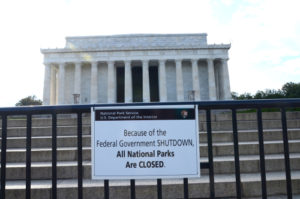What the Government Shutdown Means for Whistleblowers

As of January 3, 2019, the federal courts are still open, and say they can stay open at least through January 11 by using available funds from court fee payments and other sources not dependent on new appropriations. However, most Department of Justice civil attorneys have been furloughed. Without attorneys from DOJ, cases involving the United States are not be able to proceed as they normally would. Accordingly, DOJ’s Contingency Plan says that “civil litigation will be curtailed or postponed” to the extent possible without significantly compromising safety or risking property.
What does this mean for whistleblowers? Some courts, including the Southern District of New York, have issued blanket orders staying cases and extending deadlines in all civil cases in which the U.S. Attorney’s Office has entered an appearance. In districts without such a blanket order, DOJ has filed requests to temporarily stay proceedings for intervened cases in active litigation. If those requested stays are denied, then DOJ will comply with the Court’s order and continue the litigation.
For cases not in active litigation with the U.S. – such as False Claims Act cases still under seal, or non-intervened cases – DOJ stay requests may or may not have been filed. Where there are no immediate deadlines for the U.S., filing a request for a stay is obviously less of a priority. However, whistleblowers and their attorneys can expect that investigations will be delayed, and federal witnesses will not be available. If the shutdown drags on, DOJ may become more active in requesting stays in non-intervened litigation, or private parties may seek them based on witness unavailability.
At other federal agencies, activities are similarly curtailed.
- SEC: The SEC has an “extremely limited number of staff members available to respond to emergency situations” involving market integrity or investor protection. As of January 3, the SEC was still accepting whistleblower submissions on its electronic portal.
- CFTC: The CFTC states that it “expects that the vast majority of the agency’s operations will cease.” As of January 3, the CFTC was still accepting whistleblower submissions on its electronic portal.
- IRS: Many IRS employees are excepted from the shutdown. However, only a few employees from the Whistleblower Office are excepted for limited purposes.
Law enforcement such as the FBI and HHS-OIG are generally exempted from furlough. However, whistleblowers with ongoing agency investigations can expect delays in all but a limited number of matters.
Whistleblowers should not assume that the federal government shutdown extends deadlines, and should consult with an experienced whistleblower attorney. While the shutdown means things are not “business as usual,” the courts are still open, agencies are still accepting filings, and whistleblowers are still coming forward to expose wrongdoing.
Read More:
- FAQs about the whistleblower claims process
- The Constantine Cannon Whistleblower Team
- Contact us for a confidential consultation with a whistleblower attorney
Tagged in: CFTC Whistleblower Reward Program, FCA Federal, IRS Whistleblower Reward Program, SEC Whistleblower Reward Program,